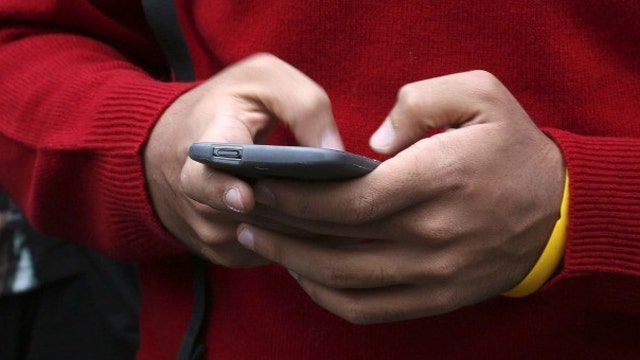New app rewards students for not texting in class
Pocket Points co-founders Rob Richardson and Mitch Gardner on whether students are getting on board
One common annoyance for teachers and professors is students texting during class.
A mobile app startup, Pocket Points is trying to change that by letting students earn rewards by not using their phones.
The app’s co-founders and current California State University, Chico, students Rob Richardson and Mitch Gardner told Fox News’ Adam Housley the idea for the app came during a lecture.
“We were just realizing that there was a problem in our classroom, a lot of students had their heads down, we knew that the teachers would have their own laws in place to punish students [like] take their phones, we thought there has got to be a better solution to this problem,” said Richardson.
This gave them the idea to develop a way to push positive reinforcement in the classroom and became the basis for Pocket Points.
“After you download the app, as soon as you get on campus it can recognize if you’re in an academic building. You open up the app and lock your phone to start earning these pocket points,” said Richardson. “As soon as you’re out of class, you unlock your phone and redeem the points.”
To make sure students are actually in class, the app uses geo-fence technology to accurately detect the user’s location.
Richardson explains that earning points can vary depending on how many people are using the app simultaneously. “More people means more points.”
If only one person on campus is earning points, it might take 35 to 45 minutes to earn a point. But he suggests that “if there are 1,000 people earning points on campus, it might take around 15 minutes per point.”
After earning points, the app, partnering with businesses on and off campus, lets students use their points, acting as virtual coupons to receive discounts.
“A lot of businesses are loving the outcome, they are getting hundreds of students walking in every week or so … when people walk into the door they use Pocket Points and they are usually with a couple of friends,” said Garner.
Students in several other schools, including the University of Michigan and Pennsylvania State University are using the service, which has had over 30,000 downloads.
The co-founders are also working with professors to get their feedback on the app. “We really wanted to make something for the teachers … we focus on the user, on the student, but the professors love it” as more people are likely to keep their focus on the lecturer than their device, Richardson explained.
Critics, however, suggest that even with their phones put away, students can use other technology, like laptops and tablets, as distractions.
A recent study by the University of Nebraska found that the typical college student plays with his or her digital device an average of 11 times a day while in class.
Richardson contends that “phones are the most prominent, so that’s what we decided to put our focus on for now.” But he did suggest there might be other versions of Pocket Points coming down the road.









































